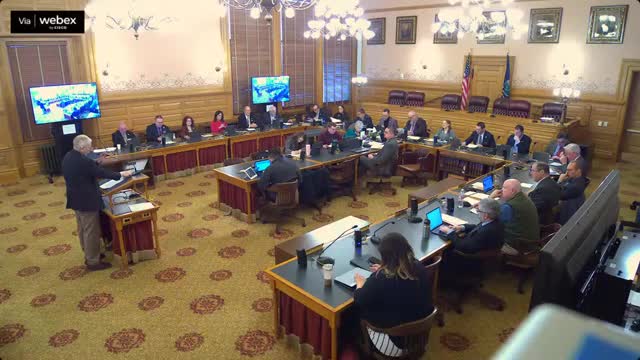Committee debates bill to exempt Wildlife and Parks from legislative review of high‑cost rules
Get AI-powered insights, summaries, and transcripts
Subscribe
Summary
House Bill 2279 would exempt rules adopted by the Kansas Department of Wildlife and Parks from a statutory requirement that rules expected to cost $1 million or more over five years receive legislative approval; supporters said the exemption preserves agency timeliness, opponents said it weakens the REINS Act and risks unchecked regulatory costs.
The Committee on Federal and State Affairs heard testimony on House Bill 2279, which would exempt rules and regulations adopted by the Kansas Department of Wildlife and Parks from a statutory requirement that rules expected to impose $1 million or more in implementation and compliance costs over five years must receive legislative approval.
Sponsor Representative Will Carpenter urged the committee to preserve Wildlife and Parks’ ability to act quickly in wildlife crises and to avoid the practical difficulties and cost of comprehensive economic studies. “I stand in strong support of exempting the wildlife and parks from the $200,000 economic study over 5 years totaling a million dollars,” Carpenter said, arguing that true economic studies of actions such as limits on nonresident waterfowl permits could require multi‑year, university‑level research.
Opponents told the committee the bill would weaken legislative oversight established last year. Eric Stafford, vice president of government affairs at the Kansas Chamber, described the 2022 changes (commonly called the REINS Act) and said the purpose was to prevent agencies from imposing costly regulations without legislative review. “If we give this to wildlife and parks, then every other state agency … are gonna come in and seek their own exemption,” Stafford said. Tanner Temple of Americans for Prosperity said the measure “creates the potential for unchecked regulatory actions” and sets a precedent for future exemptions. Jordan Milholm of Legislative Research told the committee he was not aware of any agency study that quantifies the cost of preparing an economic impact statement for rules.
Committee members probed the practical effect of the statute and whether the agency would still be required to prepare economic impact statements. A Revisor from the Statutes Office and Legislative Research staff said agencies would still prepare statements but the bill would remove the requirement that the legislature formally approve rules determined to exceed the $1 million threshold. Members on both sides warned about precedent: Representative Corbett said exempting one agency would invite others to seek the same, while Representative Carpenter and supporters argued the department faces unique operational needs.
Numerous business and trade groups, including the Kansas Chamber, Americans for Prosperity, the Kansas Grain and Feed Association and Kansas Agribusiness Retailers Association, submitted written or oral opposition, arguing the bill undercuts the REINS Act’s intent. The committee did not take a vote at the hearing and closed testimony.
